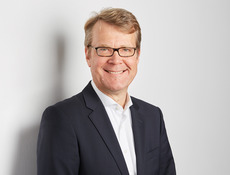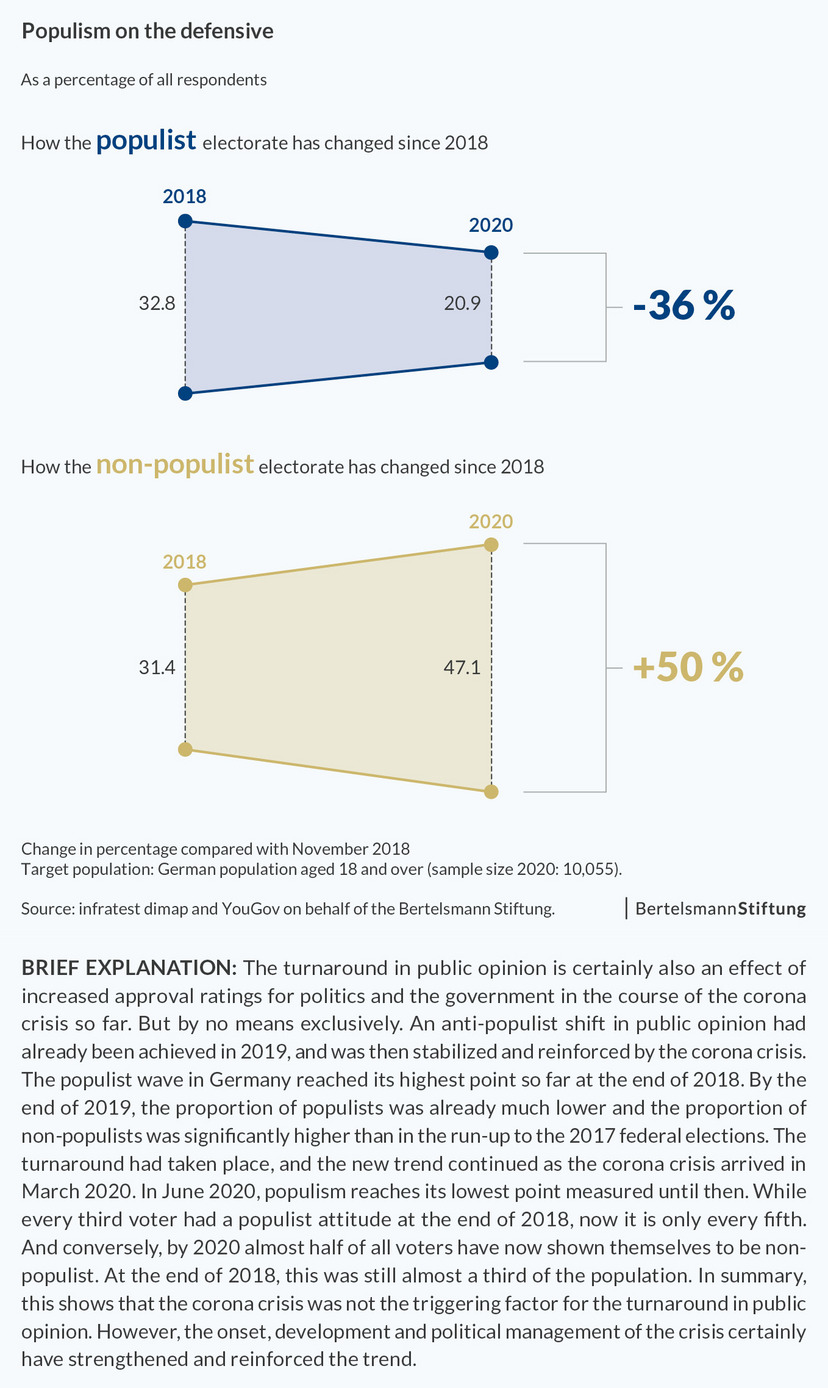The trend towards an increasingly populist political climate in Germany has been turned around. In November 2018, one in three voters still had a populist attitude, but by June 2020 it was only one in five – a drop of more than a third. At the same time, the proportion of non-populist voters has risen steeply. Compared with 31.4 percent at the end of 2018, almost one in two voters (47.1 percent) was non-populist in mid-2020. The proportion of non-populist voters has thus risen by exactly half. This reinforces the clarity of the trend: the increase in the proportion of non-populist voters has been even greater than the decrease in the proportion of populist voters.
This is the result of the new edition of the Populism Barometer compiled by us and the Berlin Social Science Center (WZB). Commissioned by us, YouGov Germany conducted a representative survey of more than 10,000 eligible voters in June 2020. Since March 2017, this is already the fifth such survey carried out for the Populism Barometer. Respondents are considered populist if they simultaneously profess eight typically populist attitudes within the dimensions of anti-pluralism, anti-establishment, and homogeneity of the people.





